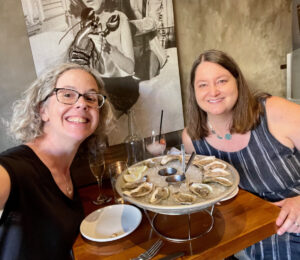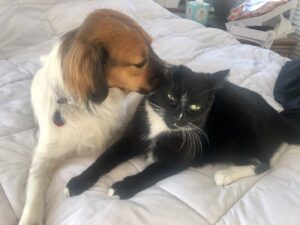I first assigned Dirk’s article “Navigating Genres” to a class I was teaching at another institution called “Writing Across The Disciplines.” The goal of the class was to have students explore and research how writing varies based on the field they are planning on going into, so recognizing each discipline-specific style of writing as a type of “genre,” as Dirk describes them, worked well. But I realized when I started using the model syllabus this semester for my 1121 course at City Tech that there was a lot of overlap between Dirk’s ideas on genre and discourse communities, the main similarity being that we write and communicate differently in different contexts, and through this we can start to conceptualize concepts like audience and purpose. Through this overlap, I can see the benefits of assigning an article like Dirk’s to a composition course, and how it might work to compliment concepts like discourse communities.
As Dirk states in the piece, one of her goals is to take genre “often quite theoretical in the field of rhetoric and composition” and make it “a bit more tangible.” It is this process of simplifying something typically understood as abstract that could benefit students in composition courses. The biggest takeaway for students from Dirk’s ideas on genre might be a “lowering of the stakes” when engaging with the daunting essay writing process. Partnered with raising genre awareness is a heightened awareness of the fact that we are all writing all the time. When one is able to recognize that, the act of writing on demand becomes less intimidating, as one realizes they are going through the writing process in different ways everyday. With this awareness that we are all writing all the time across genres, students can begin to pay attention to how they already “orient” themselves towards the expectations of genres via text messages, tweets and even asking their roommates to do the dishes. Dirk illustrates this (in terms that I think would resonate with students) when she says “Because you know how these genres function as social actions, you can quite accurately predict how they will function rhetorically: Your joke should generate a laugh, your email should elicit a response, and your updated Facebook status should generate comments from your online friends.” The writing process in a composition class, then, is transformed from some “foreign and weird task that your professor just wants you to do” into a different version, or genre, of what you already know how to do on some level. In this way, students can begin to view themselves as active writers, rather than “non-writers required to take a writing class.”
Furthermore, genre awareness lowers the stakes by letting you know that people have done what you are doing before, and therefore you can look to these previous examples as formulas for success. Dirk quotes Amy Devitt saying, “Genres develop because they respond appropriately to situations that writers encounter repeatedly….once we recognize a recurring situation, a situation that we or others have responded to in the past, our response to that situation can be guided by past responses.” When I’ve taught this reading in the past, the metaphor I use to explain this is building a car. Because writing does not produce “material results,” it can sometimes feel as though there are no directions or instruction manuals that you can follow, in the same way as if you were building a vehicle. Raising genre awareness allows students to see that there are sets of directions available to them when it comes to writing. Once the directions existed to build a car, it would be insane to try and start from scratch! Similarly, students can begin to realize that they do not have to enter the writing process blindly, but can rather identify the genre in which their writing and locate successful “directions” left behind by previous writers.






